
OR
Opinion
Empty Universities and Packed Suitcases: Is This The Future?
Published On: July 31, 2023 08:50 AM NPT By: Astitwa Raj Wagle
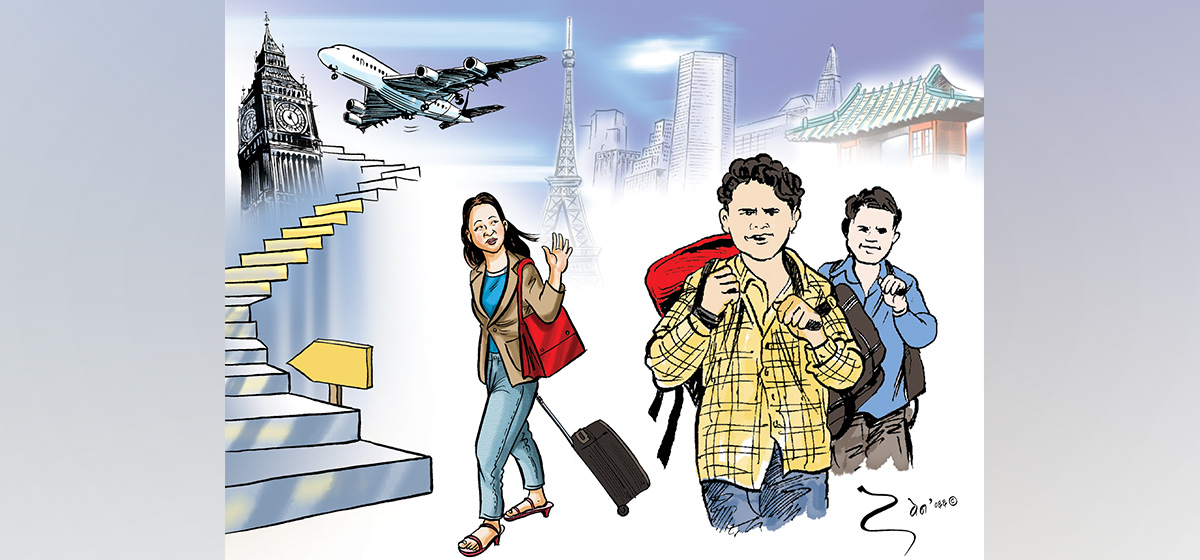

Astitwa Raj Wagle
The author is currently pursuing his Bachelor’s degree in Economics at DePauw University, USA.news@myrepublica.com
More from Author
It is imperative to remember that it is not the departure of students that will haunt us, but it is their unwillingness to return that will.
The topic of Nepali students leaving Nepal to go abroad has evolved into a societal, tea-time conversation rather than an impactful, policy-level discourse with meaning and action behind it. But why wouldn’t it? For a country that glorifies the inflow of remittances every single year, this is not surprising. Yet, the government fails to understand that the outflow of the educated, skilled, and energetic population brings an immeasurable loss to the country's development, much more than any monetary gains brought in by remittances. Amidst this predicament, the government is left with a few choices. Either remain in the status quo, or, facilitate the students with a system that allows them to acquire an international standard education - in or outside the country with an incentivized promise that welcomes not only them, but the education, skills, and experience that they bring with them with opportunities to put them to good use. While at face value it might seem counterintuitive to aid in the process of ‘brain drain’, upon closer inspection, this strategy must be two-pronged with an equal emphasis on providing students with the best resources for their education as well as lucrative opportunities to bring them back. But why such an approach? It is imperative to remember that it is not their departure that will haunt us, but it is their unwillingness to return that will.
In an ideal world, Nepal would house enough international standard education institutions for all students in the country, so that going abroad for higher education would become an alternative rather than an increasing necessity. However, this is far-fetched from reality. Over 80,000 students applied for a ‘No Objection Certificate’ (NOC) from July 2022 to March 2023. On average, about 600 applications are submitted to the office every single day. Unfortunately, this is the reality. Structural faults, slow processing time, and ancient syllabi among other issues have plagued the higher education industry in Nepal for a long time. Recent issues regarding students from Tribhuvan University being unable to receive their equivalence certificates from the institution are one of the many examples of institutional negligence in a broken system. This system has opted for excuses and deflection rather than accountability and excellence. It is a shame and one more blemish to add to an increasing list of incompetence in universities. Yet, we keep expecting our youths to stay in the country, an expectation that seems to be continuously unrealistic. Without a drastic change in the management of the higher education industry in Nepal, it is clear that students much prefer attaining their degrees abroad, given they can afford it.
So is this it? Are we headed toward empty universities and packed suitcases? I certainly hope not. What the country desperately needs is reform in its education system and institutions, enough to convince students to choose to stay in Nepal. Students report the mismanagement of university resources and the politics within the university as some of the criticisms of Nepali universities. Universities not adhering to the academic calendars have also been a major roadblock for students pursuing higher education in the country. If as a country, we are not able to give students the necessities for quality education, how is it fair that we expect students to stay and enroll within the country? According to a report by the University Grants Commission, a body that oversees higher education, university enrollment decreased by 6,002 students from the fiscal year 2019-20 to 2020-21. This trend is expected to follow suit in upcoming years and has left universities scrambling to retain students within the borders. What is it that they must do? It is presumptuous to point at the students that are leaving as it adds nothing to the discourse. They have their reasons and their ambitions and recognize their worth. Instead, it must be time to reflect and revamp our universities with updated syllabi, timely admission, transparency, systematic enrollment, sincere management, and standard education. Studying in Nepal must not be a compromise for our students.
What is crucial to understand is that such large-scale changes require a transition period in the interim. If Nepal’s higher education industry truly wants to level up on the quality and scale of education, properly planning and implementing this restructuring process must take time and effort. However, students must not be left in a state of limbo where they are unable to acquire an education while waiting for things to change. For something as important as their future, it is unacceptable to let it go to waste. We must bite the bullet and concede that for this interim period, students that want to go abroad must be given easier access. Facilitating them with the best possible resources to guide them toward their ambitions must be our focus in the short term. Thousands have waited in queues at governmental offices whether it is for their NOCs, passports, or their visas, myself included. Yet, it hasn’t stopped students from leaving. If the constant hurdles of unending lines and infinite paperwork are not strong enough to stop them, it is a sign that we must reassess our strategy. All that these hurdles do is add fuel to their frustration towards the country and give them one more reason to not come back. What good does an educated human resource do if they are unwilling to return?
Therefore, our priority must lie in creating incentives, be it financial or occupational - to convince and attract our students back into our country. This could be done in various ways. Rethinking our education policy is a start. Accordingly, a structurally embedded program within universities to recruit graduating students into the field of their choice according to their qualifications is a great way to hire students. Moreover, having a body that oversees and ensures the progress of students as they step into the workforce is crucial. It could be governmentally funded or privatized, but regardless, the body must be responsible for connecting our exceptionally talented human resources with the correct employers with an emphasis on providing them with an international standard of income. After all, why shouldn’t quality education equate to quality pay?
If we wholeheartedly want progress in Nepal, our students must be kept at the forefront of development. We must listen to their criticisms, build around our human resources, and not expect them to adapt to our faulty system. Students no longer want the age of revolutions, instead what they ask for is income stability, insurance, good governance, and most importantly - job opportunities. Opportunities to work, opportunities to have a standard of living, and opportunities to witness the country’s growth. This must be our new way forward, otherwise, the development of our country might be outpaced by the outflow of our human capital.
You May Like This
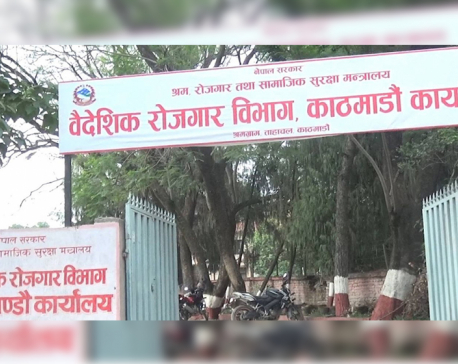
414 foreign nationals receive work permits in Nepal in five months of current FY
KATHMANDU, Jan 3: For years, a significant number of Nepali youths have been seeking employment abroad due to the challenges... Read More...

Tertiary Education at a Crossroads in Nepal
In recent years, a growing number of students have approached me for migration certificates or recommendation letters to leave the... Read More...
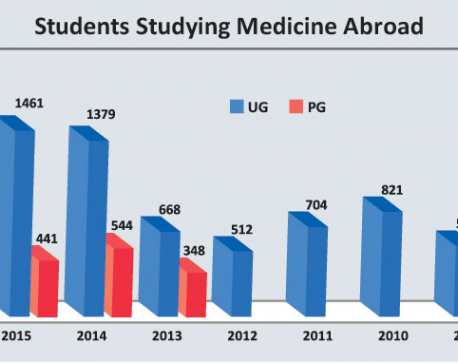
Numbers of students going abroad for MBBS officially drops
KATHMANDU, Jan 10: While the official number of students going abroad to study medical sciences has decreased, it is learnt... Read More...

Just In
- Nepal Investment Summit (live)
- Clear Policies Set to Boost American Investment in Nepal: US Ambassador Thompson
- Second T-20 series: Nepal loses toss, set to go for fielding first
- Nepal Investment Summit 2024 and Victor Hugo Moments for Reforms
- Kathmandu continues to top the chart of world’s most polluted cities
- 3rd Investment Summit: Govt seeking letters of intent for 20 projects
- Gold price increases by Rs 400 per tola
- ‘We have established a long-term vision and policy stability in key investment sectors’






-1200x560-wm_20240427144118.jpg)




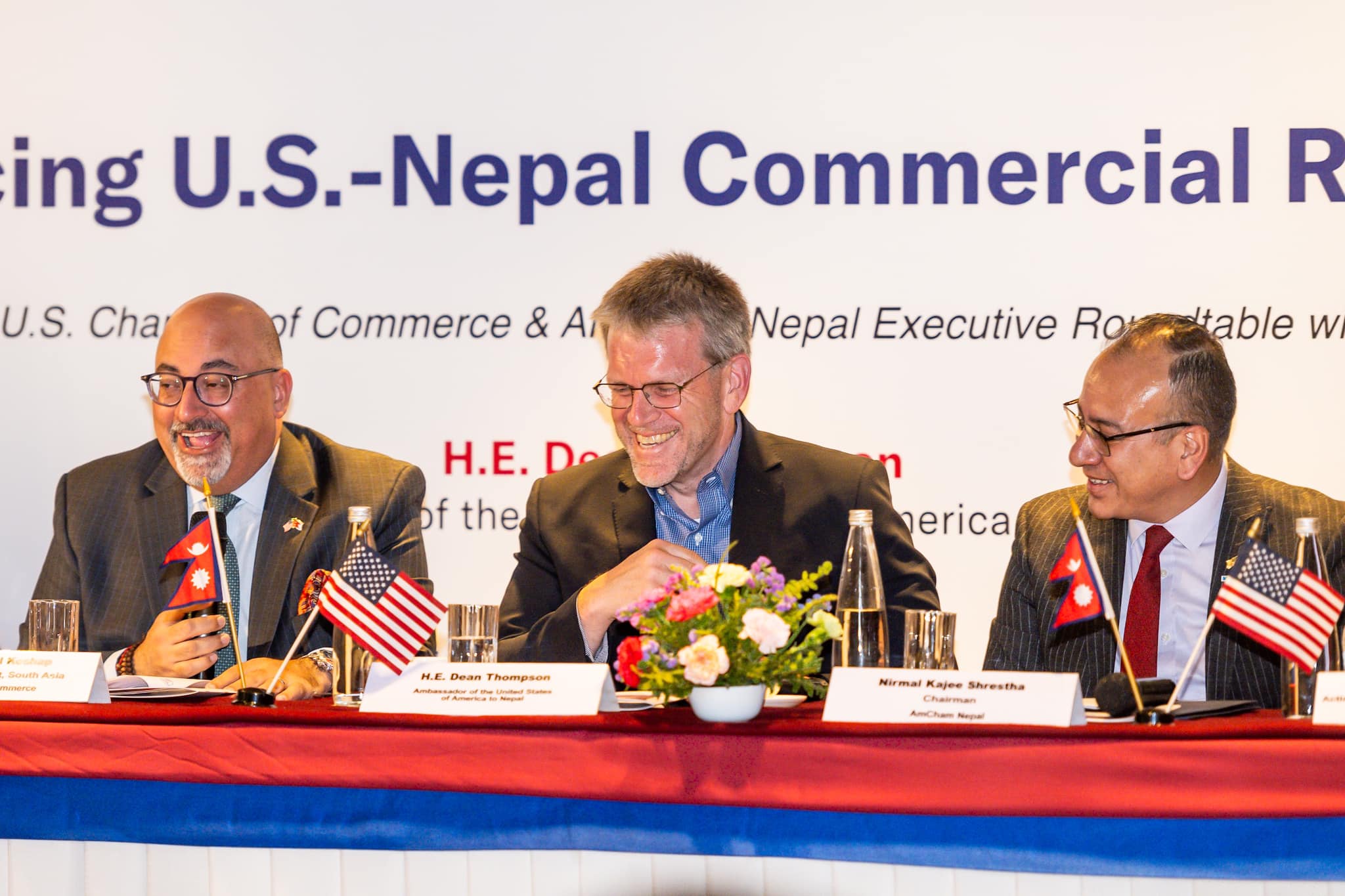



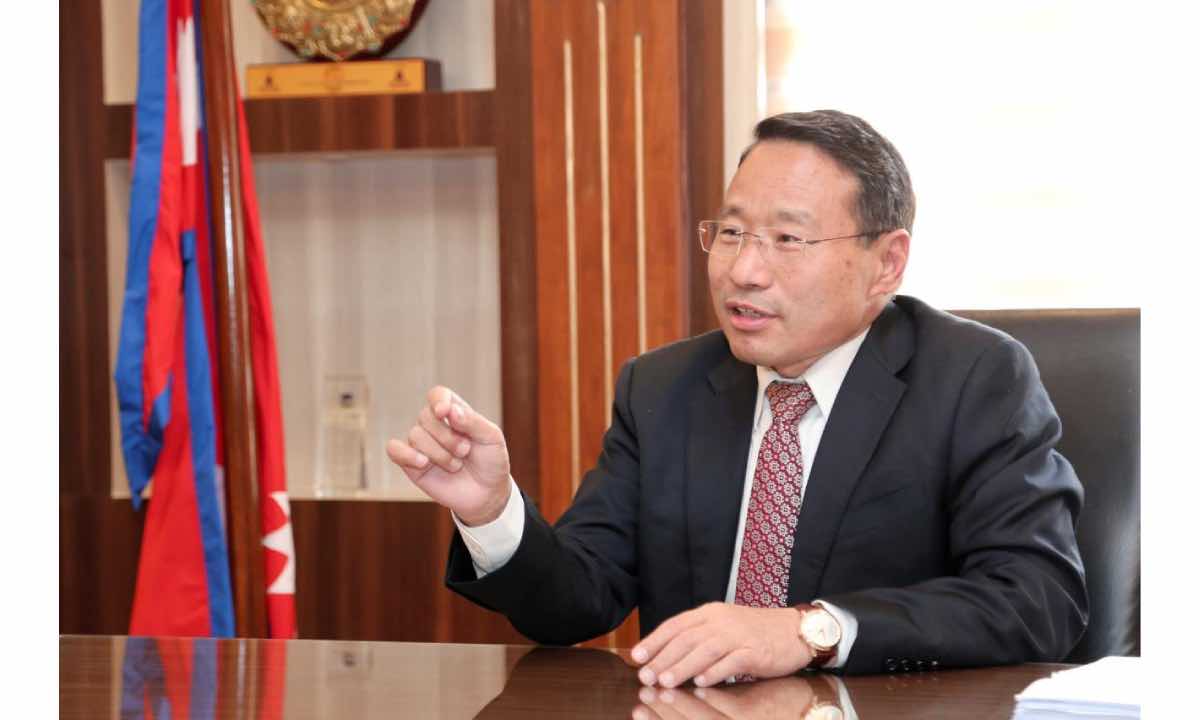
Leave A Comment